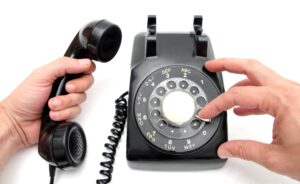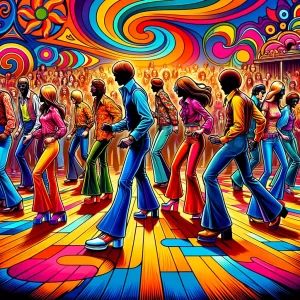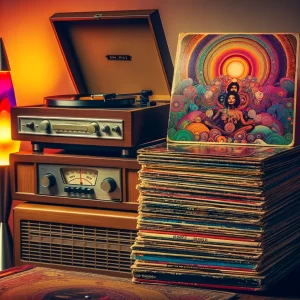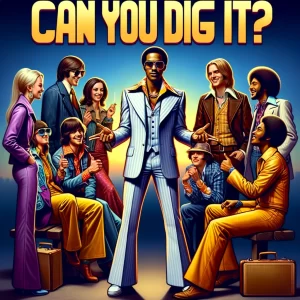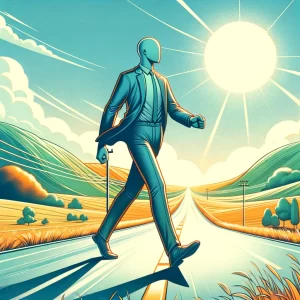In an era marked by rapid technological advancements and shifting cultural norms, many skills that were once deemed essential have now drifted into obsolescence. The Baby Boomer generation, born between 1946 and 1964, came of age in a period defined by post-war innovation and traditional values. They acquired life skills tailored to their time, many of which have lost their practicality in today’s digital-dominated and fast-paced world. Here, we delve into ten Baby Boomer life skills that, while once indispensable, now find little use in contemporary society.
1. Mastering the Rotary Phone
The rotary phone, with its distinctive circular dial and mechanical ring, was a staple in most households during the Baby Boomer era. Operating one required a certain finesse, from the precise rotation of the dial for each number to the patience of waiting for it to return before dialing the next digit. In contrast, today’s generation is more likely to swipe on a touchscreen, making the skill of dialing a rotary phone an intriguing, yet largely unnecessary, party trick.
2. Navigating with Paper Maps
Long before GPS technology and digital mapping apps became ubiquitous, Baby Boomers were adept at using paper maps for navigation. They learned to interpret complex symbols, scale distances, and plot routes across folding maps that could be as cumbersome as they were crucial. While the ability to read a paper map remains a valuable skill in specific contexts, such as hiking or in areas with poor cell reception, digital navigation largely made it unnecessary.
3. The Art of Cursive Writing
Cursive writing was a significant part of the Baby Boomer’s education, with schools dedicating considerable time to teaching students how to write in a flowing, connected style. While cursive writing can still be appreciated as an art form and is useful for developing fine motor skills, the rise of digital communication means that the ability to write in cursive is no longer as essential as it once was.
4. Operating a Typewriter
The typewriter was the word processor of the Baby Boomer generation, complete with its own required skills such as changing ribbons, correcting mistakes with whiteout, and manually advancing the paper. The advent of personal computers and digital word processing has rendered these typewriting skills largely obsolete, though the tactile experience of typing on a mechanical keyboard has its nostalgic charm.
5. Memorizing Phone Numbers
In an age before smartphones and digital contact lists, memorizing phone numbers was a necessity. Baby Boomers often boasted an impressive mental Rolodex of family, friends, and business contacts. While still valuable for emergencies, memorizing a long list of phone numbers is less critical today, with most people relying on their devices to store this information.
6. Utilizing a Library Card Catalog
The library card catalog, with its drawers full of index cards sorted by the Dewey Decimal System, was once the gateway to a world of knowledge. Baby Boomers learned to navigate these catalogs with ease, a skill rendered nearly obsolete by the advent of digital catalogs and searchable databases that offer instant access to library resources.
7. Changing a Tire Independently
While knowing how to change a tire remains an important skill, the frequency with which it’s needed has diminished thanks to improvements in tire durability and the widespread availability of roadside assistance services. For many Baby Boomers, changing a tire was a rite of passage, whereas today’s drivers may go their entire driving careers without ever needing to replace a tire on the roadside.
8. Balancing a Checkbook Manually
The meticulous task of balancing a checkbook was once a routine part of managing one’s finances. It involved recording every transaction by hand to ensure the balance matched the bank’s records. Today, online banking platforms automate much of this process, providing real-time account balances and transaction histories that make manual checkbook balancing a largely redundant practice.
9. Adjusting Rabbit Ear Antennas for Television Reception
Baby Boomers were familiar with the ritual of adjusting the “rabbit ear” antennas on their television sets to improve reception and minimize static. The switch to digital broadcasting and the proliferation of cable and streaming services have made the knowledge of TV antenna adjustment more of a historical footnote than a practical necessity.
10. Developing Film in a Darkroom
Photography for Baby Boomers often involved the magical process of developing film in a darkroom, a skill that required a deep understanding of chemicals, exposure times, and photo paper. While film photography still has its enthusiasts, the instant nature of digital photography has largely eliminated the need for traditional film development skills in everyday life.
These Baby Boomer Life Skills Are a Sign of Changing Times
The Baby Boomer life skills that once defined the generation’s adaptability and resourcefulness may now seem quaint or even obsolete in the face of modern technology and changing societal needs. However, these skills are a testament to the ingenuity and resilience of a generation that navigated a world on the brink of the digital age. As we look to the future, it’s worth pondering which of our current skills will be regarded with the same nostalgic curiosity by generations to come, reminding us of the relentless march of progress and innovation.
Read More:
15 Lifestyle Choices of Baby Boomers That Spark Debate
Millennials and Baby Boomers: 16 Misunderstandings Unraveled
Catherine is a tech-savvy writer who has focused on the personal finance space for more than eight years. She has a Bachelor’s in Information Technology and enjoys showcasing how tech can simplify everyday personal finance tasks like budgeting, spending tracking, and planning for the future. Additionally, she’s explored the ins and outs of the world of side hustles and loves to share what she’s learned along the way. When she’s not working, you can find her relaxing at home in the Pacific Northwest with her two cats or enjoying a cup of coffee at her neighborhood cafe.


